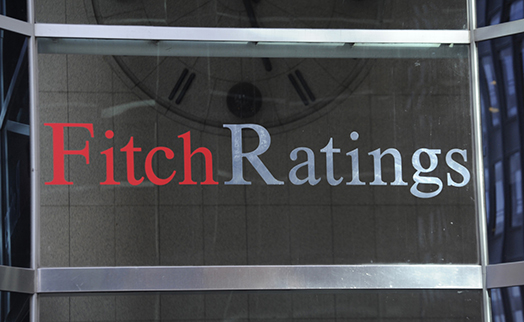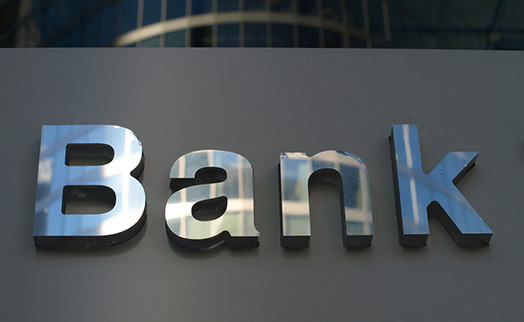14.02.2014 14:59

YEREVAN, February 14. /ARKA/. Fitch Ratings has affirmed Armenia’s long-term foreign and local currency Issuer Default Ratings (IDRs) national currency ratings at 'BB-', the press service of the agency told ARKA.
“The issue ratings on Armenia's senior unsecured foreign and local currency bonds are also affirmed at 'BB-'. The Outlooks on the Long-term IDRs are Stable. The Country Ceiling is affirmed at 'BB' and the Short-term foreign currency IDR at 'B', the outlook stable”, says the report.
Key rating drivers
The affirmation of Armenia's sovereign ratings reflects several factors, according to the report. In particular, it shows fiscal outturns came in below budget for the second consecutive year in 2013.
“Due to higher-than-expected tax revenue and under-spending on large foreign-financed projects, Fitch estimates that the fiscal deficit remained virtually unchanged from 2012 at about 1.6% of GDP in 2013, compared with a projected 2.6% in the budget law”, Fitch says.
Another factor is the debt dynamics that are likely to remain fairly favourable. Fitch expects the debt/GDP to fall slightly in 2014 and remain broadly stable thereafter. However, because 84% of public debt is foreign-currency denominated, Armenia's debt profile is vulnerable to exchange rate shocks. The pension reform currently being passed should help to develop the domestic financial market, although this will take time.
According to Fitch, GDP growth has fallen to about 3% in 2013, down from 7.2% in 2012, mainly because of a slowdown in public investment, a poor agricultural season and a temporary rise in gas prices. Fitch expects growth to recover gradually, to about 4% in 2014 and 5% over the longer term.
The budget law projected a 6.2% GDP growth for 2013 and 5.2% for 2014. Fitch estimates the current account deficit (CAD) to have narrowed to a still-high 8.2% of GDP in 2013, from 11.2% in 2012, and is expected to shrink gradually over the forecast period. The improvement was primarily due to a significant rise in the income and transfers surpluses. A narrowing of the CAD, together with Armenia's first sovereign eurobond issue, helped to generate a modest increase in foreign currency reserves.
Fitch says the Central Bank of Armenia is allowing exchange rate flexibility, despite high dollarisation. “Armenia's ratings are supported by a fairly strong macroeconomic framework and an inflation track record in line with 'BB'-rated sovereigns. Macroeconomic policy management has benefitted from a series of IMF programmes dating back to 2005 and Armenia recently agreed a further USD125m extended fund facility for 2014-17”, according to the report.
Fitch experts believe bank risks to sovereign creditworthiness are mitigated by a strong loss absorption capacity and by predominantly foreign ownership of banks. Despite having slowed in 1H13, lending growth remains high, notwithstanding CBA's attempts to dampen growth in foreign currency lending.
The report says Armenia's recent agreement to join the Russian-led customs union instead of the EU Eastern Partnership Programme underlined its strong ties with Russia.
“Entering the customs union will allow for a reduction in gas prices, thereby reducing the import bill and improving Armenia's terms of trade. However, given the already predominant share of Russia in Armenian external trade, joining the customs union is unlikely to affect trade flows significantly”, according to the document.
Rating sensitivities
The Stable Outlook reflects Fitch's assessment that upside and downside risks to the ratings are currently well balanced. Consequently, Fitch's sensitivity analysis does not currently anticipate developments with a high likelihood of leading to a rating change.
The main factors that, individually or collectively, could lead to positive rating action are ongoing improvement in the current account deficit and a stronger reserve position, reducing public debt/GDP at a faster rate than Fitch's baseline. Apart from this, a track record of sustainably low fiscal deficits without affecting GDP growth would improve creditworthiness, especially given a forecast rise in sovereign external funding costs.
Among the main factors that, individually or collectively, could lead to negative rating action is material slippage in the performance of public finances leading to a rise in the debt/GDP ratio.
A sharp depreciation in the exchange rate worsening solvency risks, given the government's largely foreign currency-denominated debt, would pose risks to the financial system in view of the high level of dollarization, says the report.
An escalation of tensions with Armenia's neighbours is another factor that may lead to negative rating action.
Key assumptions
The ratings and Outlooks are sensitive to a number of assumptions. Fitch assumes that:
- real GDP growth and fiscal outturns do not deviate greatly from its forecast, and that any spillover from slowing growth in Russia is contained;
- there is no material shift in Russia's policy towards Armenia;
- a sharp downswing in metals prices is avoided. Mining exports, especially copper, account for nearly half of Armenia's goods exports;
- Armenia continues to enjoy broad social and political stability, and that there is no significant worsening in tensions with Azerbaijan surrounding Nagorno-Karabakh
- the gradual progress in deepening fiscal and financial integration at the eurozone level will continue; key macroeconomic imbalances within the currency union will be slowly unwound; and eurozone governments will tighten fiscal policy over the medium term. Fitch also assumes that the risk of fragmentation of the eurozone remains low.
Previously, Fitch Ratings affirmed Armenia’s long-term foreign and local currency Issuer Default Ratings (IDRs) national currency ratings at 'BB-', outlook stable, in August 2013. –0--
Read the news first and discuss them in our Telegram
Tags:


























